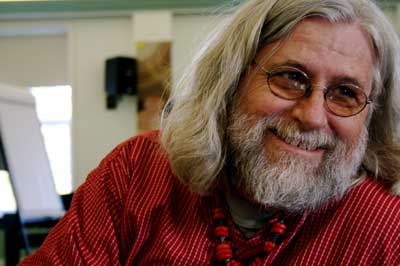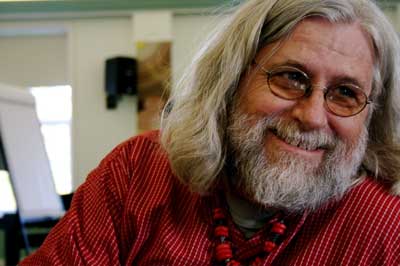A transforming evening with TEAR and Dave Andrews: Commercial lessons from a community radical
I had the honour to meet author and community sector leader Dave Andrews Tuesday night when he visited a local TEAR group meeting. My first impressions align with the description on his website of a “weirdy, beardy, proverbially wise-old, kind-old, be-slippered, fire-sided, snoozy, fearless, story-telling, grand-fatherly, rugged, tribal-leader.” After our discussion and a bit of research, I will add that he is also revolutionary, dangerous, and incredibly knowledgeable on many things related to making a real difference in this world.

TEAR Overview
A focus of the evening’s conversation was on the work of TEAR (Transformation Empowerment Advocacy Relief), for which Dave’s role is Community Empowerment, Exposure and Training Officer. TEAR is unique in that it does not have its own programs but provides a framework to support projects through strategic partners. To the point, TEAR is “involved with development, relief and advocacy projects which focus on the poorest and most marginalised people and give priority to their rights, interests, needs and capacities.”
In 2011, TEAR distributed program funds in excess of AUD$10 million for 166 projects with 92 partners in 22 countries. TEAR focuses not just on giving funds, but on empowering locals, building sustainability, and creating local relationships and personal engagement. Dave described the efforts as one of a movement as compared to working in an agency, which aligned with Dave’s approach on other areas discussed in the evening.
Application in any organisation
There are a few take-aways from the evening’s conversation and research into Dave’s work that can be applied in any organisational context, commercial or non-profit:
1. “Doing the work” versus “creating a program”
Dave notes dangers of turning vocation into a profession such as inappropriate specialisation when a generalist would be more appropriate, overly protective behaviour towards information to protect status, and creating a need to support the existence of the program or entity. Dave draws from his own life as an example, applying his overseas experience on a local level in The Waiter’s Union community group he set up in West End.
At what point does the profession or persona we are creating become more important than the vocation or outcomes that got us into the role in the first place?
2. Appreciative inquiry to validate outcomes
Dave notes how TEAR has reduced the administrative burden by consolidating project reporting to multiple agencies using an appreciative inquiry approach. The approach focuses on what is going well rather than what is not by asking: 1) what is best practice, 2) what is going well, and 3) what can be done to get more of what is going well.
How often do we try to fix what is broken as compared to or at the expense of investing in what is working?
3. Open space technology to create conversations
Dave referred to open space technology (OST) as a mechanism for fostering culture and innovation. OST focuses people on having conversations about what they care about and what they are prepared to commit to. It also allows organisations to find those with passion and the responsibility to act on that passion. New initiatives are developed as people think and talk until there is critical mass.
Are there times when the agenda needs to be discovered versus having the agenda mandated?
4. The least of these
We discussed at length the paradox of giving to international efforts that resulted in marginalised local suppliers. While it is good that people do good, there is a rise in criticism of popular forms of overseas aid:
- Haiti doesn’t need your yoga mat
- Good intentions are not enough
- In-kind donations: Who benefits?
- Red Cross NZ: In times of disaster why we need money not goods
The observations above are not to negate the work of those performing foreign aid, but rather re-focus those efforts for the most sustainable impact to the foreign local economy.
I question in western society at what point we are doing good as compared to being seen to do good. Jewish philosopher and holocaust survivor Victor Frankl states that “man’s search for meaning is his primary motivation in life” and that it is through giving of ourselves that we find that meaning.
I will always remember the look on Dave’s face when I asked, “for organisations looking to engage, to what or whom then should we then focus?”
The response back in the form of a question is obvious in hindsight: “When you look around your local community, who are the least of these?”
I see this as a transforming question that can be applied to internal staff, to current and potential clients, and to the communities in which organisations operate. I have not asked the question enough myself to have a response ready. If the question is asked with a real intent to help, the answer will become obvious.


I listened to a great talk the other day that addressed the topic in a similar fashion. It was an interesting interpretation of Luke 16:19-31 and begged one to ask the question: “Who is the Lazarus at your door?” This is something many of us need to ask.